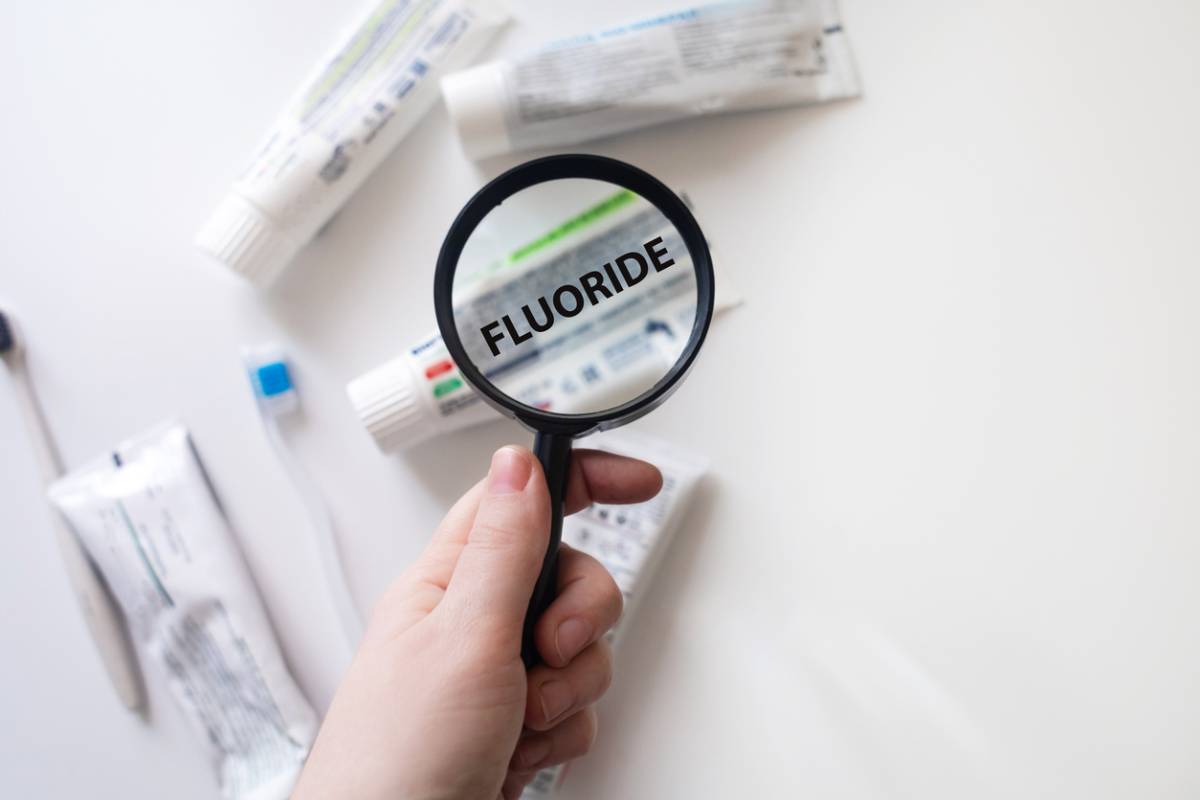After your routine teeth cleaning, a fluoride treatment can help sweeten the deal. Patients at risk of cavities can see notable benefits from this quick (about 5 minutes) additional treatment. However, the internet abounds with theories about fluoride. So, is fluoride good or bad for the body? We break down the benefits and potential risks of this ubiquitous substance.
Is Fluoride Good or Bad for the Body?
Fluoride is a substance that has both benefits and risks for the body. Like many substances, it all depends on how it is used (and where in/on the body). Firstly, we want to emphasize that the benefits enormously outweigh any potential risks.
For example, many topical creams can have notable benefits when used on the skin. But if you accidentally get some in your eye, the same product could cause pain, burning, and other negative effects.
A similar concept applies to fluoride. Use it properly, and you reap benefits. If you use it the wrong way, the risk may rise. However, we will preface this by saying it would be very, very difficult to use it incorrectly. Whether fluoride is good or bad for the body will depend. But (hint) it’s mostly good.
When Is Fluoride Good for the Body?
Generally, people encounter fluoride in three places: at the dentist, in their toothpaste, and in public drinking water. In each of these situations, the amount can vary. However, laws are in place that ensure that the amount of fluoride used will be within safe reference ranges.
- At the Dentist: Fluoride treatments at the dentist are more potent. However, your specialist also carefully monitors the treatment. They ensure that you do not accidentally consume any fluoride-containing substance.
- In Toothpaste: Commercially available toothpaste comes either with or without fluoride. Companies cannot sell toothpaste with fluoride content beyond a certain safety threshold. Toothpaste for children tends to contain less fluoride, as kids can swallow toothpaste more frequently.
- In Drinking Water: The amount of fluoride in drinking water varies by locale. However, your local public water department carefully monitors drinking water. They ensure the amount of fluoride present would not pose any health risks.
Fluoride Benefits
- Fights tooth decay by strengthening tooth enamel. This enhances resistance to cavities.
- Reduces the number of bacteria in the mouth, overall improving oral health.
- Potential benefits in maintaining bone strength, particularly in older patients.
When Is Fluoride Bad for the Body?
Anything in excess can cause issues for the body. Even too much water can present serious problems. The same applies to fluoride. Generally, the safe amount of daily fluoride is about 3 to 4 mg.
This amount is not only considered safe but is recommended by the National Institutes for Health. The upper tolerable level sits at about 10 mg per day. Routine consumption of fluoride levels beyond this is where the problems begin to arise.
Potential Fluoride Concerns
- Excessive fluoride intake can cause spotting on teeth during tooth development. This concern, called dental fluorosis, is purely cosmetic. It does not affect tooth or bodily health.
- Fluoride intake far beyond the recommended levels can, over time, lead to skeletal fluorosis. However, this condition rarely occurs. You would have to consume an extreme amount of fluoride.
- Potential thyroid problems can occur with prolonged excessive fluoride consumption. Research remains inconclusive on this.
- Some studies suggest neurological issues tied to excess fluoride. However, these results are not yet conclusive.
Dispelling Myths About Fluoride
Myth #1: Fluoride Is Toxic
Fluoride is only toxic at toxic doses. Vitamins, almonds, and even sunlight are all “toxic” at the right dose. When used in the normal dosage, fluoride is entirely safe. Laws and regulations ensure that any sources of fluoride remain at safe levels. Someone would likely have to purchase pure fluoride from a lab to have enough to cause issues. And labs generally do not simply sell to anyone.
Myth #2: Fluoride Affects the Brain
There is no evidence to support the idea that fluoride affects the brain. Some research tentatively shows the risk of neurological issues at very high doses. But no one would reach anywhere near this dosage in daily life.
Myth #3: Fluoride Is Dangerous for Children
Children can absolutely consume fluoride safely. However, the recommended dose is smaller. Even if your child accidentally swallows a mouthful of your toothpaste, no major issues should arise. At most, they may feel some abdominal discomfort.
Instead, fluoride helps set your child up for lifelong oral health. Dental hygiene starts from a child’s first tooth.
A Skilled Dentist with Safety as Priority #1
At Dental Care of Chino Hills, our top-rated dentist ensures every fluoride treatment remains safe and effective. Call today to set up your appointment.

